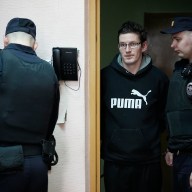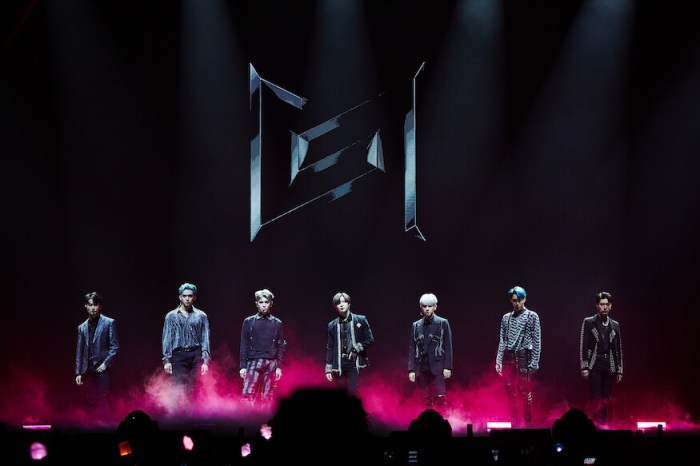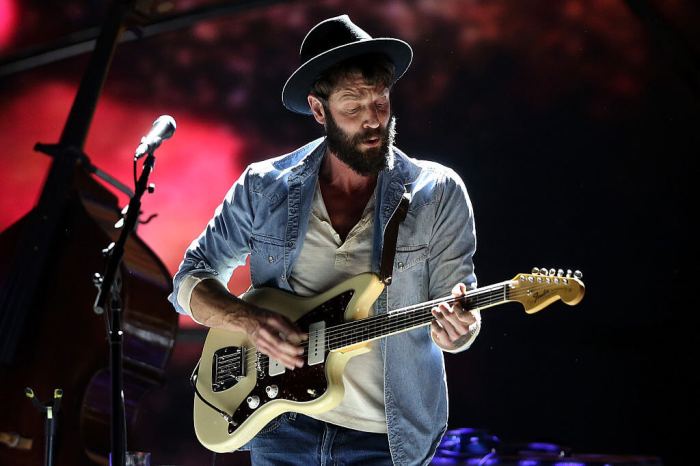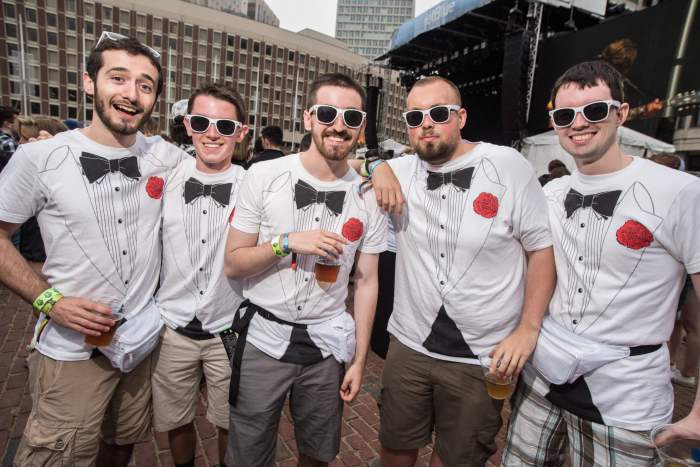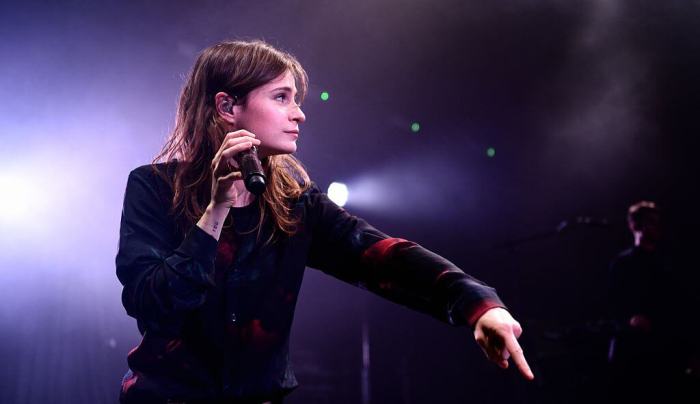What is your take on Philadelphia? You’ve done amazing gigs as far back as the old Dobbs to say nothing of your time with Elton John at the Art Museum.
Well, unfortunately I have an unhealthy propensity for Philly cheesesteaks and always make a point of going over and getting one when I’m down there, so I can’t come to Philly that much as they’re so good. Remember, too, that my father’s grandmother was from that area, the Main Line. So there is old Wainwright action down there to consider. Philly reminds me of my youth, one goes back in time when you’re there to [do] waspy Main Line stuff. Plus, there’s the whole Rocky Balboa on the thing there – very ’70s.
Rufus Wainwright says puberty brought on his love of Shakespeare
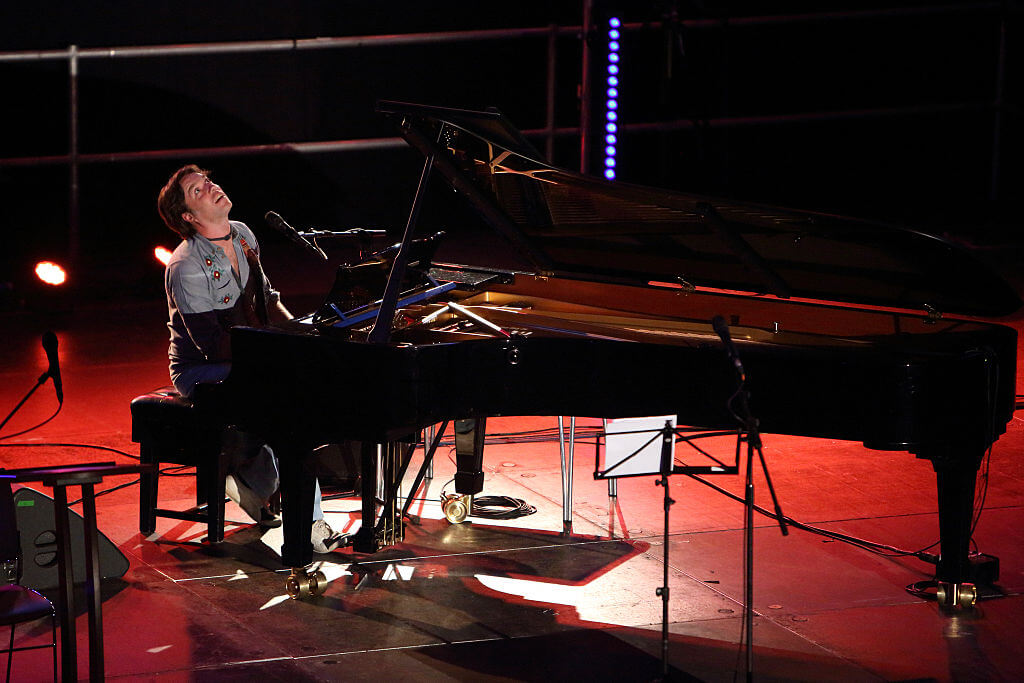
Burak Cingi/Redferns
Despite the Mark Ronson-produced “Out of the Game” in 2012, Rufus Wainwright’s last decade has been spent away from the strictures of pop. Or what he thinks of as pop. His epic conglomeration of smartly literate baroque cabaret, chamber music and opera — his Prima Donna which opened in America at Brooklyn Academy of Music — with ’70s disco and ’60s theater song, all rolled-up into elegant chord changes and his winding, bassoon-like vocals and lyrics regaling love and loneliness. His newest album, “Take All My Loves: 9 Shakespeare Sonnets,” not only features Wainwright, but co-stars William Shatner and Helena Bonham Carter sharing the limelight with the lofty composer.
Around the time of “Out of the Game,” you said you were giving mainstream pop, one big college try for the big brass ring. How did that grab go?
(Laughs) I adore that album. Arguably, it’s one of my best-sounding albums. It wasn’t a huge pop hit, but that’s always the case whenever I put out a record. You have to have gargantuan hope in order to get out there and sell anything. It wasn’t a hit, and that’s OK. I won’t be executed or anything.
I know you just released a new album and that you have a second opera in the works. Do you think your next album will find itself closer to “Game” or the avant-chamber music of “Sonnets”?
Once the opera is done, I might be pretty chuffed to check out what the kids are doing. I have been writing new songs, however, during this whole period and what I write does become a reaction to the stately world of high art, so I wouldn’t be surprised if the next album came out sounding closer to “Out of the Game.”
You haven’t done your Judy Garland show in a minute. What does several years away from that catalog do for its upcoming performances at Carnegie Hall?
It’s been at least 5 years ago, at London’s Royal Opera House. I’m going to do the whole kit and caboodle at Carnegie Hall again and we’ll see. I’m looking forward to finding out what being away from it means. It’s one of the most vocally acrobatic exercises out there. I guess my voice is at its peak right now as most voices are in their 40’s. I just want to see just how high that peak is, and there’s no better way of finding out than doing Judy Garland songs.
“Take All My Loves” comes from your time with director Robert Wilson and the late Michael Kamen. What connection did you have with Shakespeare and these sonnets before that?
My first ever contact with the sonnets was through my mother, She loved them. In fact, I think she preferred them to the plays. I grew up with her, and she was a single mother at the time. I was going through a period when I was like 12 or 13 where I was spending a lot of time alone in my room discovering myself, so there were certain stains that were new to my mom. I don’t think that she quite knew how to deal with it, but her way of dealing was to say to me, “Shakespeare wrote a bit about what you are doing now.” And she passed me Sonnet 129: ‘Th’ expense of spirit in a waste of shame.’ [Shakespeare] was there for me from the beginning.
Obviously, this project has been gestating for a bit. Why is now a good time for the album?
I’ve done several different incarnations of these songs. In my mind, they are very malleable. Also, it is the 400t anniversary of his death. That a big deal. The big 4 oh-oh.
How does one — how do you feel out — a Shakespeare lyric? I’m looking at something such as take all Sonnet 40, which you’ve turned into this gorgeous avant-symphonic composition.
One of the key things was that I very much took the back seat. I mean with Shakespeare, who is the genius here? I have never questioned what it is he is trying to say. The music? I didn’t write a lot of it with any instruments on hand. I’d be on a plane while reading them, and I’d just try to listen [and] a melody or would come to my head and I’d just grab hold. It’s like being in a trance. It’s amazing what people come up with when they shut up.
Thursday June 16 and Friday June 17 at 8 p.m. at Carnegie Hall, 57th St. & 7th Avenue. New York, NY. $45-$200. 212-903-9601, www.carnegiehall.org






